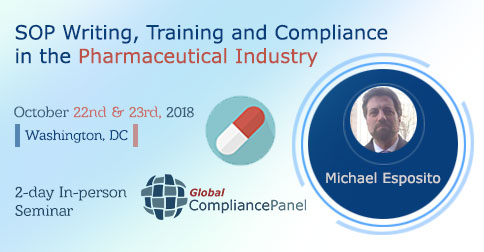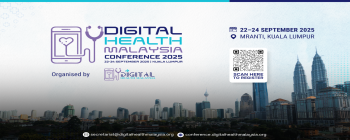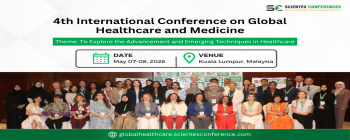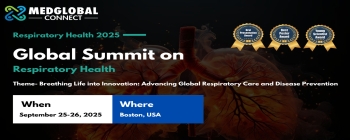
Overview:
Standard Operating Procedures (SOPs) are the basis for a large part of the day-to-day training that most pharmaceutical employees are required to perform, and are a vital component of ensuring compliance with regulatory agency requirements for pharmaceutical manufacturing.
Pharmaceutical employees often do not realize that by putting their processes in writing, they are making commitments to regulatory agencies. To achieve the goal of an SOP that has adequate but not excessive detail, the course will define the parameters of an effective SOP and provide a solid foundation that will have a positive impact on training and job performance. Conversely, the negative impact of poorly written procedures on production and compliance will also be explored. To achieve these ends, the course will explain the use of process excellence tools, as well as interaction with the SOP process owner and/or author to create a robust process and procedure. In addition, the course will demonstrate how to avoid common pitfalls in revising existing procedures.
It is not widely understood how the writing of a procedure can have a positive or negative impact on training. In this course you will also learn the vital connection between the documentation and training spheres, and how to maximize this connection to improve the quality of both SOPs and training. The training department needs to be in the loop at the start of the SOP development process, so that the SOP and training content can be written with the learner in mind, using adult learning principles and consistent terminology.
There is a relationship between SOPs, training curricula and employees' qualification to perform their tasks. Through this course you will also learn how to integrate SOPs effectively into these curricula, which is the proof to internal auditors and regulatory agencies that job positions are correctly identified and documentation exists to demonstrate employees' qualification to perform their tasks independently.
This course will also show you how to perform ongoing assessments of learners' retention of knowledge of SOP content for continuous improvement and avoidance of procedural deviations, using the tools already available in your company's training software.
Learning Objectives:
- To articulate the regulatory implications of what is written in an SOP
- To learn the parameters of an effective SOP
- To distinguish a well-written SOP from a poorly written one
- To define processes better by effective interaction with the SOP process owner and/or author
- To revise SOPs effectively and avoid unnecessary complications in procedures
- To improve the writing of SOPs for more effective training and reduction of errors
- To integrate the SOP effectively into the training curricula of employees
- To identify different types of training curricula
- To distinguish curricula from modules and individual training items
- To structure curricula to facilitate qualifying employees to perform functions independently
- To evaluate an employee's qualification to perform tasks using position curricula data
- To take advantage of the connection between SOPs and job performance
- To measure retention of SOP content at the training stage
- To use data from training software to drive continuous improvement and stay ahead of deviations
Areas Covered in the Session:
- Regulatory requirements for SOPs
- Using process excellence tools to create a robust process and procedure
- What commitments you make when you put your process in writing
- Keeping training in mind while writing procedures
- Consequences of noncompliance
- Define the parameters of an effective SOP
- How your foundation keeps subsequent steps from going awry
- Why poorly written procedures have a negative impact on production
- What identifies a poorly written procedure
- Compliance risks with ambiguity or excessive detail
- Avoiding pitfalls in revising SOPs
- Interact with the SOP process owner/author to improve the writing of procedures
- Integrate the SOP effectively into the position curricula of employees
- Relationship between SOPs and employees' training curricula
- Why the training department needs to be in the loop at the start of the SOP development process
- Relationship between SOPs, curricula and qualification to perform tasks
- Retention of the content at the training stage
- The implications of good training for successful SOP execution
- Perform an ongoing assessment of knowledge retention of SOPs for continuous improvement
- Review of learning objectives
- Knowledge assessment
Who Will Benefit:
- Pharmaceutical industry, particularly those areas that develop SOPs for the manufacturing or quality monitoring of pharmaceutical products (Product Development, Production Planning, Manufacturing, Quality Assurance), as well as Information Technology (IT)
- Pharmaceutical companies such as Pfizer, Johnson & Johnson and its associated companies (e.g. Janssen, DePuy-Synthes, Ethicon, Vistakon), Abbott, Merck, Bristol-Myers Squibb, Lilly, Novartis, Novo Nordisk, Amgen, Sanofi, AstraZeneca, Glaxo Smith Kline, Mylan, Almac, Hisamitsu, Cardinal Health, Baxter, Roche, Bayer, Boehringer Ingelheim, Takeda, Teva, Amgen, Biogen, AbbVie, Astellas, Daiichi-Sankyo
- Parenteral Drug Association (PDA), GMP Training Educators' Association (GMP TEA), Institute of Packaging Professionals (IoPP), Association for Talent Development (ATD), Association for GMP Excellence (AGXPE)
- This course will be of benefit to anyone who is an owner of a process, responsible for writing or reviewing procedures, and/or managing training in a GMP environment.
Agenda:
Day 1 Schedule
Registration Process - (8:30am - 9:00am)
Session will begin by - (9:00am)
8:30-8:59 Registration, Meet & Greet.
9:00 - 10:00
Lecture 1:
- Seminar objectives review, expectations and scope.
- Interview attendees re their specific responsibilities and needs
- Agreement on focus
10:00 - 11:00
Lecture 2:
- Regulatory requirements for SOPs
- What commitments you make when you put your process in writing
- Consequences of noncompliance
- Review or knowledge check
11:00 - 12:00
Lecture 3:
- Parameters of an effective SOP (scope, length, conciseness, responsibilities)
- Distinguishing good SOPs from poor SOPs
- Practice exercise
12:00 - 1:00 Lunch
1:00 - 2:00
Lecture 4:
- Using process excellence tools to create a robust process and procedure
- Brief process excellence exercise using areas of expertise in room
2:00 - 3:00
Lecture 5:
- Pulling out the process from process owners and subject matter experts
- Simulation of interview with stakeholders
- Revision of procedures - avoiding pitfalls
- Brief exercise to revise a process
3:00 - 4:00
Lecture 6:
- Keeping training in mind while writing procedures
- Simulation of a discussion between training and documentation
- Attendee practice
4:00 - 4:30
Lecture 7:
- Knowledge check for day
Day 2 Schedule
8:30-8:59 Registration, Meet & Greet.
9:00 - 10:00
Lecture 1:
- Seminar objectives review, expectations and scope.
- Review of Day 1 topics, feedback and conclusions
10:00 - 11:00
Lecture 2:
- Relationship between SOPs and training curricula
- Basics of training curricula
- Structuring courses and modules
- Demo of creating a curriculum with existing SOPs
11:00 - 12:00
Lecture 3:
- Exercise in creating training curricula with existing SOPs - breakout groups and flip charts
- Group review
12:00 - 1:00 Lunch
1:00 - 2:00
Lecture 4:
- Curriculum completion and qualification to perform tasks
- Special circumstances of systems training roles and curricula
- Demo and practice of evaluating qualification
2:00 - 3:00
Lecture 5:
- Measurement of SOP and training effectiveness (e.g. knowledge assessment questions)
- Tools in Learning Management Systems (LMSs)
- How you as an SOP writer can access these tools
- Exercise in evaluating training data
3:00 - 4:00
Lecture 6:
- Course review
- Questions and feedback
4:00 - 4:30
Lecture 7:
- Knowledge assessment
Speaker
Michael Esposito
Principal, TrainReach Consulting, LLC & Life Science Training Institute
Michael Esposito has over 30 years experience in the pharmaceutical industry and 17 years experience in GMP training and document management. He has worked for Wyeth Pharmaceuticals, Pfizer and Johnson & Johnson's McNeil Consumer Healthcare Division in a variety of areas including Packaging, project administration, Quality Assurance, Government Contracts, translations, systems training, and international operations. He collaborated in the development and implementation of the training portion of the Consent Decree workplan for McNeil and revised their introductory GMP course. He is a member of the training organizations GMP Training Educators Association and Association for GXP Excellence and is fully fluent in Spanish. His areas of interest include systems training, training effectiveness, post-training user support, process improvement, and sustainable packaging.
Location: Washington, DC Date: October 22nd & 23rd, 2018 and Time: 8:30 AM to 4:30 PM
Venue: Courtyard Arlington Crystal City/Reagan National Airport 2899 Jefferson Davis Hwy, Arlington, VA 22202, USA
Price:
Price: $1,295.00 (Seminar Fee for One Delegate)
Register for 5 attendees Price: $3,885.00 $6,475.00 You Save: $2,590.00 (40%)*
Register for 10 attendees Price: $7,122.00 $12,950.00 You Save: $5,828.00 (45%)*
Register now and save $200. (Early Bird)
Sponsorship Program benefits for seminar
For More Information- https://www.globalcompliancepanel.com/control/sponsorship
Contact us today!
NetZealous LLC DBA GlobalCompliancePanel
john.robinson@globalcompliancepanel.com
Toll free: +1-800-447-9407
Phone: +1-510-584-9661
Website: http://www.globalcompliancepanel.com
Registration Link - https://www.globalcompliancepanel.com/control/globalseminars/~product_id=901831SEMINAR?SEO
Follow us on LinkedIn: https://www.linkedin.com/company/globalcompliancepanelindia/
Like us our Facebook page: https://www.facebook.com/TrainingsAtGlobalCompliancePanel/
Follow us on Twitter: https://twitter.com/GCPanel






